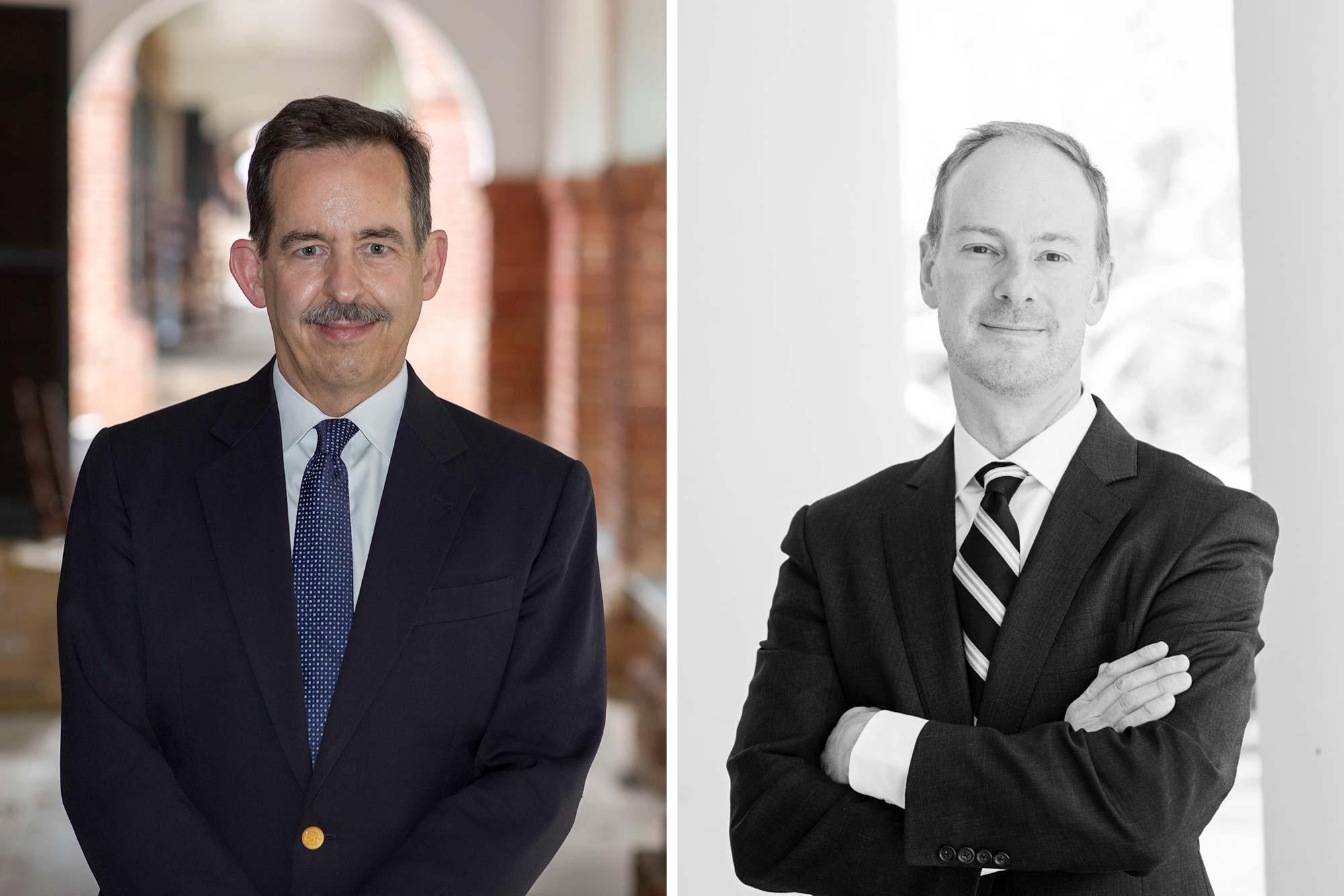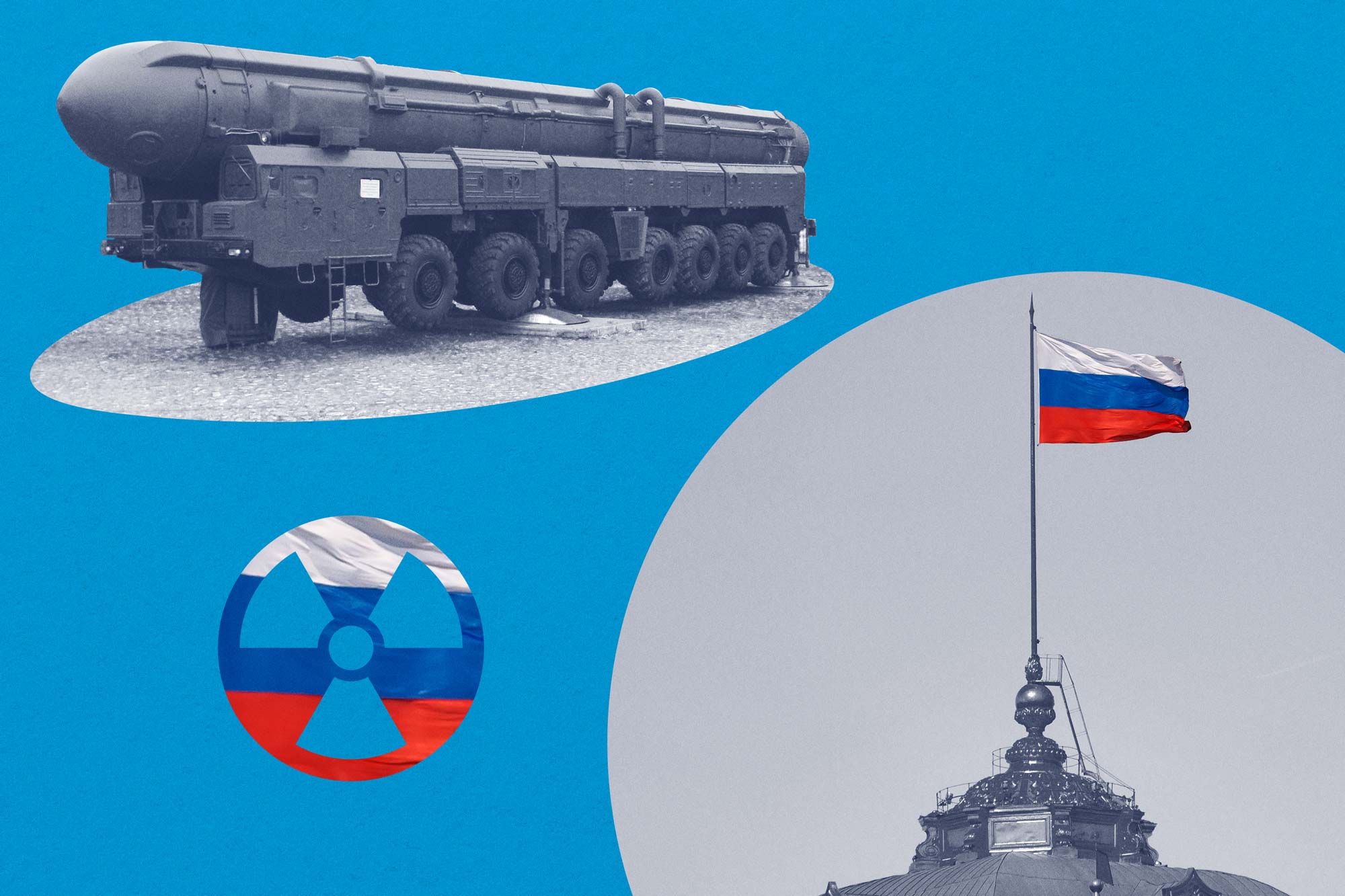Russia’s assault on Ukraine continues to disrupt and complicate life not only in the besieged democracy, but across the world. The impacts are direct and personal, with lives lost and families separated. And the impacts are massive and impossible to predict, with markets and economies scrambled and the threat of wider conflict looming.
Late last week, Russian President Vladimir Putin raised the specter of nuclear conflict when he announced his country would place its nuclear deterrent on high alert. Tuesday, President Joe Biden addresses the nation in his first State of the Union Address, with topics including war in Europe and the emerging threat to democracies suddenly at the forefront.
UVA Today checked in with two experts on issues regarding the threat of nuclear brinkmanship, the influence of today’s events on the bigger picture of global democracy and freedom, and the importance of the leadership responsibility of the United States in what happens next.
Co-author of the book “Nuclear Weapons and Coercive Diplomacy,” Todd Sechser is the Pamela Feinour Edmonds and Franklin S. Edmonds Jr. Discovery Professor of Politics and Public Policy and a senior fellow at the Miller Center.
“The nuclear alert is an extraordinary escalation. But it suggests that Putin is running out of coercive options,” he said. “Russia has been turning up the pressure on Ukraine for years, and now it has launched a full-scale invasion.”

Stephen Mull is a veteran diplomat and now is UVA’s vice provost for global affairs. Todd Sechser is the Pamela Feinour Edmonds and Franklin S. Edmonds Jr. Discovery Professor of Politics and Public Policy. (Left photo by Dan Addison, University Communications. Right photo contributed)
To this point, Moscow has succeeded mostly in prompting a massive economic backlash that Russians will feel for a long time,” said Sechser, who also runs UVA’s Democratic Statecraft Lab.
“If the nuclear alert was intended to coerce the United States and Europe into ratcheting down economic sanctions or abandoning Ukraine, it failed. If anything, it has served to further inflame world opinion against Russia,” Sechser said. “But this fits the historical pattern: nuclear threats are only credible for self-defense, not as a means of coercion.”
Leaders may have the misconception that nuclear threats are a dial they can turn up and down to get what they want. But, Sechser said, “they soon discover, as Donald Trump did with North Korea, that it isn’t so simple.”
So how will this crisis end? Sechser said it will, in part, depend on how much Ukrainian territory the Russian military can take, what costs it is willing to pay to do it, and how fierce a Ukrainian insurgent resistance might be. It is still very early, Sechser said, and we won’t know the answers to these questions for some time. “But the United States and Europe should start thinking about the conditions under which economic sanctions can be lifted, and how they can allow Putin to back down while saving face,” the nuclear expert said. “Leaving Russia a viable off-ramp is critical to preventing this crisis from escalating even further.”
UVA’s vice president of global affairs, Stephen Mull, has served in a broad range of U.S. national security positions, most recently as acting under secretary for political affairs at the U.S. Department of State. From 2012 to 2015, he was the U.S. ambassador to Poland. From 2003 to 2006, he was the U.S. ambassador to Lithuania.
To Mull, Putin’s declaration on nuclear capability is not a justified response to any military threat. He suspects Putin’s motivation is tied to an attempt to derail the gathering momentum in the world to isolate and penalize Russia, create division among Ukraine’s international supporters and significantly heighten a sense of threat among Russians domestically.
“Or, much more worryingly, it could be a sign of Putin’s increasing paranoia in seeing enemies and threats that are simply not there,” Mull said. “If that’s the case, let’s hope that those closest to him in the military command structure and, among the oligarchs, will do what they can to limit his power to carry out such military threats.”
The Biden administration and other NATO powers have wisely refused to take Putin’s bait, Mull said.
“That kind of responsible restraint helps put the onus even more on Putin for Russia’s highly destabilizing aggression against Ukraine,” he said, “and helps maintain Western solidarity in mounting pressure on the Russians. The situation will start to become more perilous globally if the Russian government begins to launch cyberattacks on Western infrastructure in retaliation for the rapidly increasing economic pressure on Russia – attacks which would demand a strong response.”
Has Ukraine become a proxy for the health and sustainability of global democracy? Mull said Russian success in Ukraine can lead to a slippery slope.
“You can count on Russia to continue and strengthen that battle on other fronts as it seeks to recreate a Russian empire on its periphery and weaken the will and ability of democracies to oppose it,” he said.
The recent events set the stage for Tuesday’s State of the Union address. Biden’s speech, scheduled for 9 p.m., provides a platform to condemn Putin and those who have favored the Russian leader amid the Ukraine crisis.
“What makes this different for President Biden is the indication of support, respect, or even signs of affection that have been emerging from some corners of the American political spectrum for Putin in spite of this brutal attack on Ukraine,” Mull said. “That is something that, to this degree, is unprecedented in modern American political history. In Tuesday’s speech, Biden has an opportunity to demonstrate that such voices are on the fringes of American political life and to reclaim a mantle for the U.S. as the world’s leader in supporting democracy and human rights after some fairly significant damage to that reputation in the past several years.
“The world will be watching.”
For additional context and analysis regarding the ongoing conflict in Ukraine, several departments and faculty members have organized a teach-in to be held at 5 p.m. on Tuesday, March 1, in Nau Hall 101. Faculty experts from history, politics, languages, American studies and elsewhere are scheduled to participate.
Media Contact
Article Information
February 28, 2022
/content/how-worried-should-we-be-about-russia-using-nuclear-weapons

